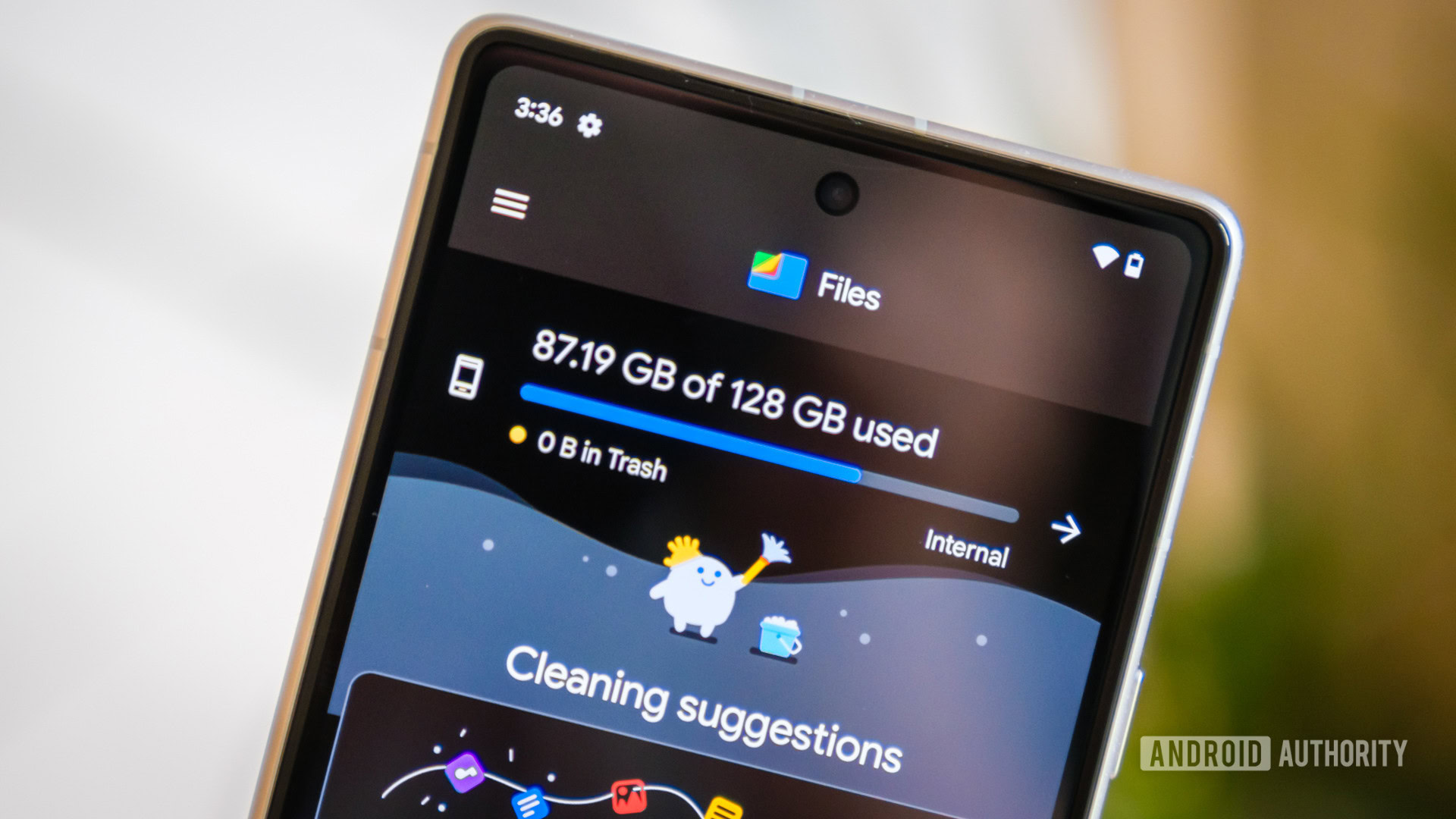Affiliate links on Android Authority may earn us a commission. Learn more.
Hey Google, bring back the microSD card if you're serious about 8K video
Published onJuly 18, 2024
According to the latest reports, at least one entry in the upcoming Pixel 9 series will support 8K video recording. This is excellent news, I suppose, although such exuberant resolution is wasted on my pitiful 4K TV — and pretty much any modern set valued at less than $2,000, for that matter. None of the big streaming players have jumped into the 8K race yet, so I won’t be shocked if you’re yet to buy into this latest living room fad. So, should we even be excited about this feature? Well, not unless Google has some solid storage perks to go with it.
How ridiculous is a 128GB Pixel 9 Pro with 8K video recording?
For argument’s sake, let’s say you want to future-proof your precious memories in glorious 8K so you can beam them back at retina-searing resolutions in the future. The problem is that 8K video files are humongous. I recorded a few samples on my Xiaomi 14 Ultra; we’re looking at about 560MB per minute for 8K at 30fps, or roughly 33GB per hour of footage. Shooting in H264 or H265 didn’t make any difference to the file size, so it presumably only affects quality, at least on this phone.
One hour of 8K video could eat up 25% of the base 128GB storage of a Pixel.
The sheer size of these files means that full-resolution cloud backups are out of the question, unless you fancy spending a small fortune on Google One over your lifetime. Google’s 2TB cloud option costs $99 for 12 months and ramps up quickly if you need even more space. Plus, it could take a long time to upload footage, even on a modest fiber connection. I’d definitely set up low-quality Google Photos backups for my Pixel 9’s video folder if I planned on shooting in 8K.
The bottom line is that we need a ton of physical storage somewhere if 8K recording is to be anything more than an advertising sticker slapped on the box. Unfortunately, most modern smartphones are pretty limited on multimedia storage.
128GB is not enough space for any base flagship, particularly a high-end model like last year’s Pixel 8 Pro, even if you’re mostly shooting pictures. Most of you agree. 8K video would eat through such a paltry amount of storage in just a few hours. The Pixel 9 series, and any phone sporting 8K recording capabilities for that matter, should have at least 256GB as the base model and perhaps even 512GB if we’re looking at years worth of video saved on the device. Thinking about it, you can’t really have enough storage space if you’re a videographer and plan to keep your phone for the full seven years of offered software support.

The solution is obvious: bring back the microSD card slot. Tens of gigabytes cost a measly sum these days, and even 1TB-sized 8K capable cards are priced well below $100. I have several decent-sized cards around for my mirrorless camera, ensuring I have duplicates of the backups I save to Google Photos and my DIY NAS. There’s a reason the photography industry continues to stand by this aging storage format: It’s easily upgradable and works really, really well.
OK, I’m only half-joking; there’s virtually zero chance Google will bring back the storage standard that it fought so hard to eradicate from the Android sphere. microSD support was a mess of reliability and poor speeds, especially when it came to installing apps on them, which is the primary factor behind eliminating expandable storage. The fact remains that navigating the maze of card speeds and classes to whittle down the list to those suitable for 8K would be a pothole-riddled path for the uninitiated, especially compared to the simplicity of buying a phone with a bigger storage chip.
But therein lies the dilemma. Smartphone makers want to upsell us on swanky, arguably pointlessly high-end features like 8K video, 200MP snaps, and Hi-Res music playback, yet are often unwilling to provide ample, affordable storage options for the multimedia enthusiasts who would actually use said features.
Phones want to sell us on high-end multimedia features, but rarely provide affordable extra storage for them.
Of course, you can spend $150 or so to leap up each rung on the Apple, Google, or Samsung’s storage ladders, but even then, you’re often capped at 512GB and end up spending hundreds more than the advertised price to make these fancy marketed features viable. Alternatively, you could buy a Sony Xperia, which is basically the only flagship exception to the no microSD card on Android rule, or spend hours copying video over to a hard drive. Either way, it’ll cost you money or time.
If the Pixel 9 series does indeed come with 8K video recording, Google should show that it’s serious about the feature with a solid chunk of baseline storage and preferably affordable steps up the storage tiers as well. Otherwise, the latest Pixel is doing little more than jumping on the buzzword bandwagon. The same goes for other big players like Samsung, Xiaomi, and all the others that are already offering 8K recording or plan to do so in the near future.